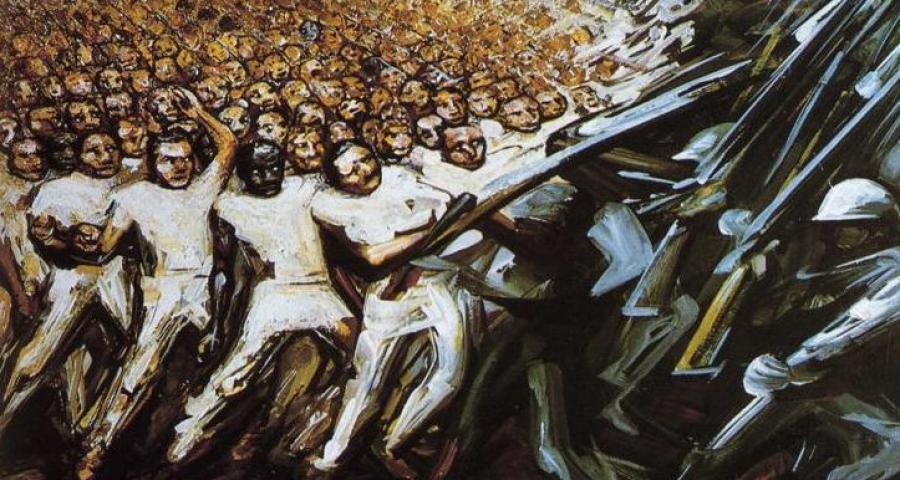At 9:40pm on October 25th, the forecastle gun of the battleship Aurora fired an ear-shattering round into the air. It was a blank, an empty shell. One-year prior, the Aurora had been contributing to the carnage of World War I, patrolling and bombarding in service to the Russian Empire. Now it was docked in Petrograd and under the control of a revolutionary sailors’ committee, most of whom supported the Bolsheviks. The blank round was, so the story goes, the first shot in the October Revolution, which overthrew the Provisional Government and established the first workers’ state in history.
Read moreEchoes of 1917
El Lissitzky's Beat the Whites With the Red Wedge, 1920.


